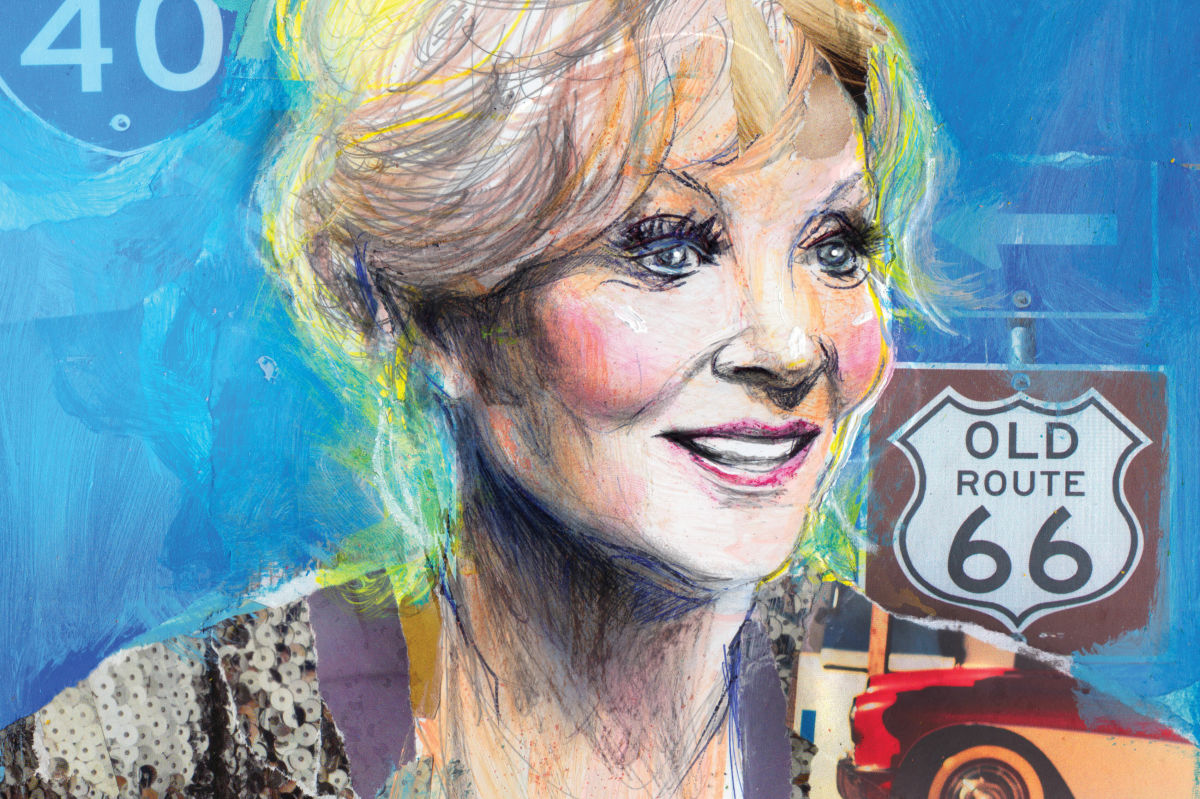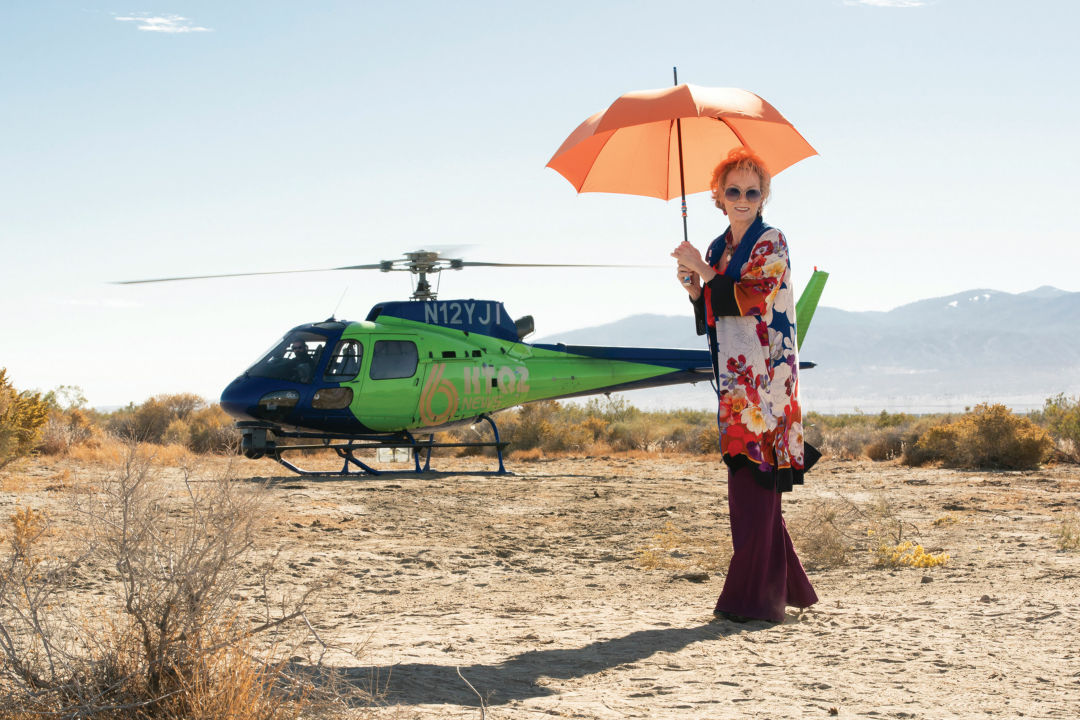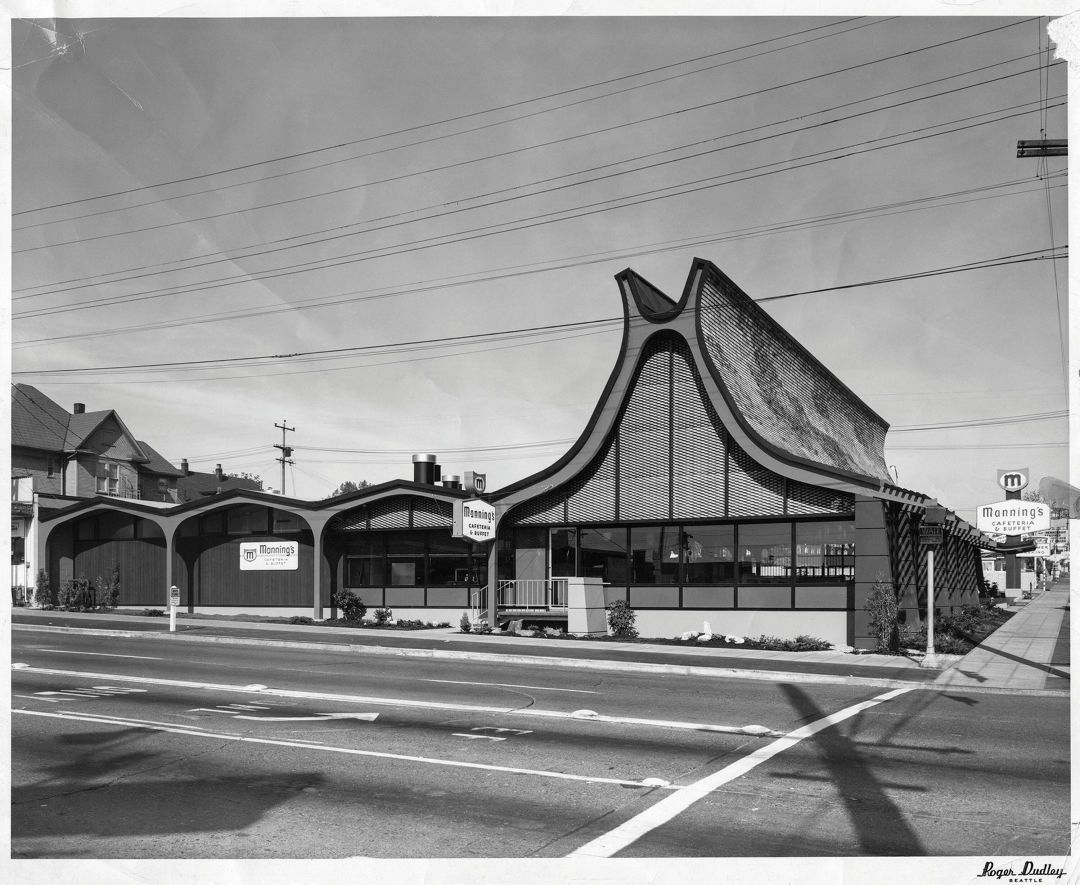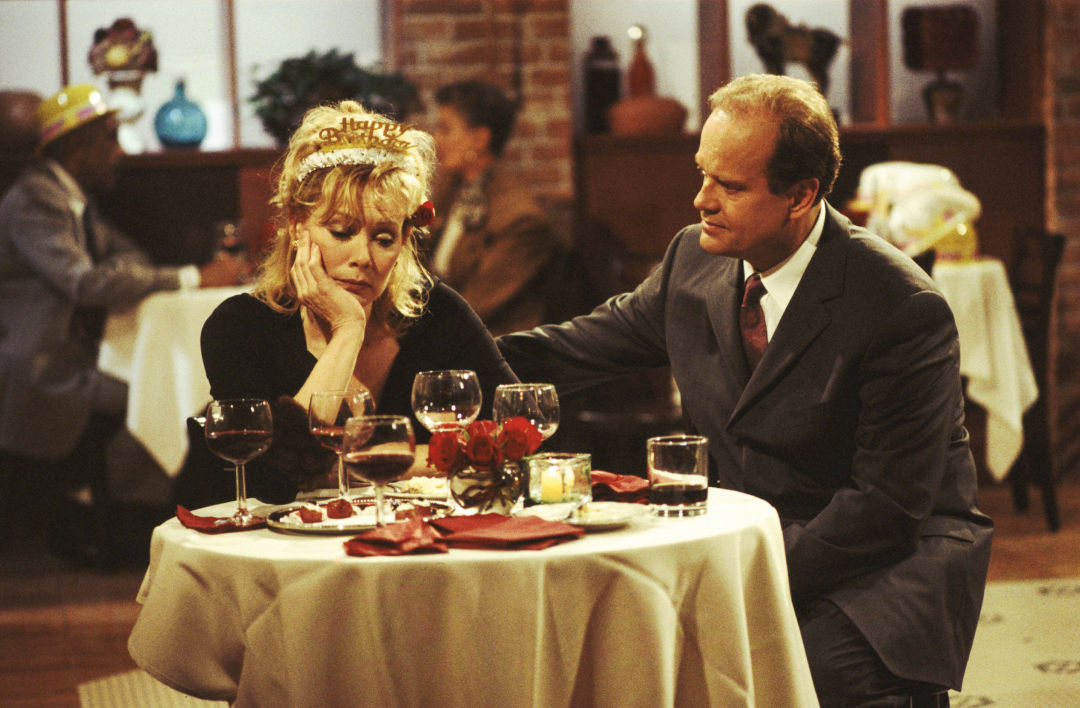
Ballard-Born Jean Smart Hacks Hollywood’s Formula for Leading Ladies

In Hacks, Jean Smart plays aging stand-up legend Deborah Vance, performing nightly on the Las Vegas strip in a rut so deep, she could line it with spangled caftans from her own home shopping line. In the HBO show’s first season, she trades incredulous takes on the state of comedy with a young writer named Ava (Hannah Einbinder). The Gen Z in this equation wants to evolve her reluctant new boss’s jokes beyond pantyhose punchlines, even though they guarantee laughs from the aging Floridians who fill the theater each night.
Smart, as Vance, huffs in disbelief: “So you’re telling me that if a lot of people think something is funny, it’s not?”
In macro, that exchange describes so many of our cultural debates about art versus commerce—novels, exhibits, even (ahem) journalism in the digital age. It does not, however, describe Smart.

The Ballard-born actress keeps seizing the zeitgeist with roles that are artistically rewarding and commercially successful, at least by the zoomed-in standards of prestige TV. At an age when many of Smart’s peers settle into roles like “saucy grandma” or “judge who isn’t amused,” her dossier gets increasingly badass: Crime boss Floyd Gerhardt in season two of Fargo. Watchmen’s Laurie Blake, a reformed vigilante turned romantically thwarted FBI sharpshooter. In 2021, Smart dove deep into Pennsylvania’s distinct Delaware County accent (and honed her Fruit Ninja skills) to play wiseass mom to Kate Winslet’s grieving cop in Mare of Easttown.
Deborah Vance is the kind of woman who summons a news chopper to give her a ride when her Rolls-Royce breaks down, then drops $10,000 on a collectible pepper shaker—but also rises at 5am to maintain a work ethic acquired through decades navigating an industry fraught with setbacks and ass grabs. Hacks debuted less than a month after Mare started unspooling its weekly episodes, giving Smart, 70, a rare—and deeply deserved—top billing.
The show returns May 12. “Second seasons are notoriously nerve-racking because you have to kind of prove yourself,” she acknowledged in a recent phone interview.
Her ability to own a scene like it’s a $10,000 pepper shaker dates back to Ballard High School and Earl Kelly’s intensive student drama program. Smart grew up in the Crown Hill neighborhood, one of four kids, with a father who taught at Ballard before moving on to Nathan Hale High School. “All of his friends were my teachers; I had to be really good.” Smart was, in her own words, a “goody- two-shoes cheerleader” who didn’t discover drama until her senior year.
Amid all this, she worked. At age 15 she served meals to patients at the University of Washington Medical Center. She looked older—being tall helps—and some patients mistook her for a nurse. “I would see stuff that I shouldn’t have seen.” She moved on to restaurant jobs, washing dishes and giant pots by hand under the swooping roofline of the old Manning’s Cafeteria.

After high school, and a coveted slot in University of Washington’s Professional Actor Training Program, Smart didn’t immediately consider Hollywood. Her status as a willowy blonde might mark her a wannabe ingenue, but Smart was a Ballardite after all, raised among taciturn Swedes and fishermen’s kids. She was about the work. She performed at the Oregon Shakespeare Festival, as well as Seattle Rep, ACT, the Intiman. Later Smart appeared as Lady Macbeth at the Pittsburgh Public Theater, while commuting to New York to play a terminally ill lesbian who falls in love with a straight woman in the landmark play Last Summer at Bluefish Cove. Both roles were a long way from ingenue.
The night Smart won her fourth Emmy, she took the stage in a long black gown and an aura of raw emotion. She told the crowd, “I have to acknowledge my late husband, Richard Gilliland, who passed away six months yesterday. I would not be here without him putting his career on the back burner so I could take advantage of all the wonderful opportunities I have had.”
During one of the most profound streaks in a career filled with success, Smart lost her husband of 34 years in March 2021, to an unexpected heart condition. Gilliland was an active co-parent to their sons Connor, now an adult, and Forrest, who’s 13 and a frequent sight by her side at awards shows. The second season of Hacks offered a welcome distraction from grieving, says Smart. But during filming, “I’m constantly worried about what’s going on at home,” she says. “Is everybody getting fed, getting to school?” This season, Deborah Vance goes on the road, touring comedy clubs across the nation. This meant longer hours shooting on location, compared with last year’s more family-friendly soundstage schedule.
Smart has already conducted her own national tour of sorts—her most memorable roles in four decades of television tend to be rooted in, and entwined around, specific regions within America. In Designing Women, Smart was the only lead actress not born into a Southern twang; she adeptly drawled her way through five seasons of witty naivete as Charlene Frazier Stillfield. She fought for her syndicate’s control of Fargo’s frozen North Dakota flatlands, stalked the streets of alternate-universe Tulsa in Watchmen, nailed that Delco accent in Mare, even played the First Lady on 24 back in the day.

Las Vegas is practically its own character in Hacks—during season one, Smart’s character gets a street named after her. “It’s fun to step outside yourself,” the actress acknowledges. “Use parts of yourself that you maybe don’t use on a day-to-day basis.”
Smart won her first Emmy—and her second—playing a character theoretically from Seattle. On Frasier, she guest starred on seven episodes as Frasier Crane’s high school crush turned adult romantic interest; Smart horrifies the fastidious Crane with some gleeful post-coital morning wine-swilling, cigarette smoking, and profanity-screeching.
Of course, Frasier was set in Seattle the way Designing Women was a show about fabric swatches. Smart, on the other hand, spent last Christmas here, and returns when she can to visit her brothers and their families. (“Whoever thought Ballard was gonna turn out to be hip and groovy?”) In 2020, she had a cameo in Melissa McCarthy’s movie Superintelligence. It’s set in Seattle, but like so many others, mostly filmed elsewhere. One scene shows satellite imagery of Pike Place Market, mistakenly labeled “Pike’s Place Market.”
“God, that makes me crazy,” says Smart, proving, irrefutably, that she’s still one of us.
